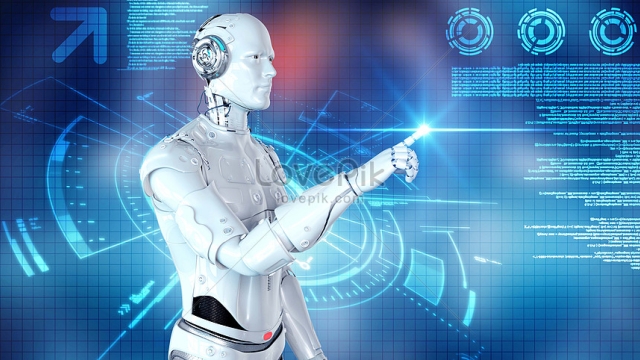
Artificial intelligence, often referred to as AI, is no longer just a concept from science fiction novels – it has become a powerful reality shaping the world we live in today. The rapid advancements in technology have propelled AI into the spotlight, revolutionizing industries, transforming businesses, and changing the way we interact with machines. From intelligent virtual assistants in our smartphones to self-driving cars navigating our streets, the influence of AI can be seen all around us.
Imagine a world where machines can learn from data, recognize speech, interpret images, and make decisions with a level of sophistication that rivals human intelligence. This is the realm that artificial intelligence is ushering us into, offering endless possibilities and challenging traditional boundaries. As we stand at the cusp of this burgeoning era, it becomes essential to understand the potential and implications of AI in shaping our future.
The Evolution of AI
Artificial intelligence, often referred to as AI, has made significant strides in recent years. Initially, AI was limited to rule-based systems that could perform specific tasks. However, advancements in machine learning and neural networks have revolutionized the capabilities of AI.
One of the key milestones in the evolution of AI was the development of deep learning algorithms. These algorithms enable AI systems to analyze vast amounts of data, recognize patterns, and make decisions with a level of accuracy that was previously unattainable.
As AI continues to evolve, researchers are exploring new frontiers such as reinforcement learning and transfer learning. These approaches hold the promise of creating AI systems that can adapt and learn in a manner that is more akin to human intelligence.
Impacts of AI on Society
AI systems are reshaping industries and revolutionizing the way we work. From self-driving cars to virtual assistants, artificial intelligence is transforming our daily lives. The integration of AI has the potential to increase efficiency, improve decision-making processes, and enhance overall productivity in various sectors of society.
One area where AI is making a significant impact is healthcare. By utilizing advanced algorithms and machine learning techniques, AI can assist medical professionals in diagnosing illnesses, predicting patient outcomes, and personalizing treatment plans. This technology has the potential to revolutionize the healthcare industry, leading to more accurate diagnoses, improved patient care, and better health outcomes for individuals.
However, the widespread adoption of AI also raises important ethical considerations. Issues such as data privacy, algorithm bias, and job displacement need to be addressed to ensure that the benefits of AI are equitably distributed across society. It is crucial for policymakers, businesses, and the public to collaborate in navigating the complex ethical challenges posed by the rapid advancement of artificial intelligence.
Future Prospects of AI
In the near future, AI is expected to revolutionize various industries such as healthcare, transportation, and finance. With advancements in machine learning algorithms and data analytics, AI will continue to enhance decision-making processes and automate routine tasks, leading to increased efficiency and cost savings.
Artificial Intelligence Search Engine
Furthermore, AI technologies are poised to improve personalized user experiences across digital platforms, enabling businesses to tailor their offerings to individual preferences. From personalized recommendations to predictive analytics, AI will play a pivotal role in enhancing customer satisfaction and loyalty in an increasingly competitive market landscape.
Looking ahead, the integration of AI with Internet of Things (IoT) devices opens up possibilities for a more interconnected and intelligent world. Smart homes, autonomous vehicles, and smart cities are just a few examples of how AI-driven technologies will shape the future, creating more efficient and sustainable environments for individuals and communities.


